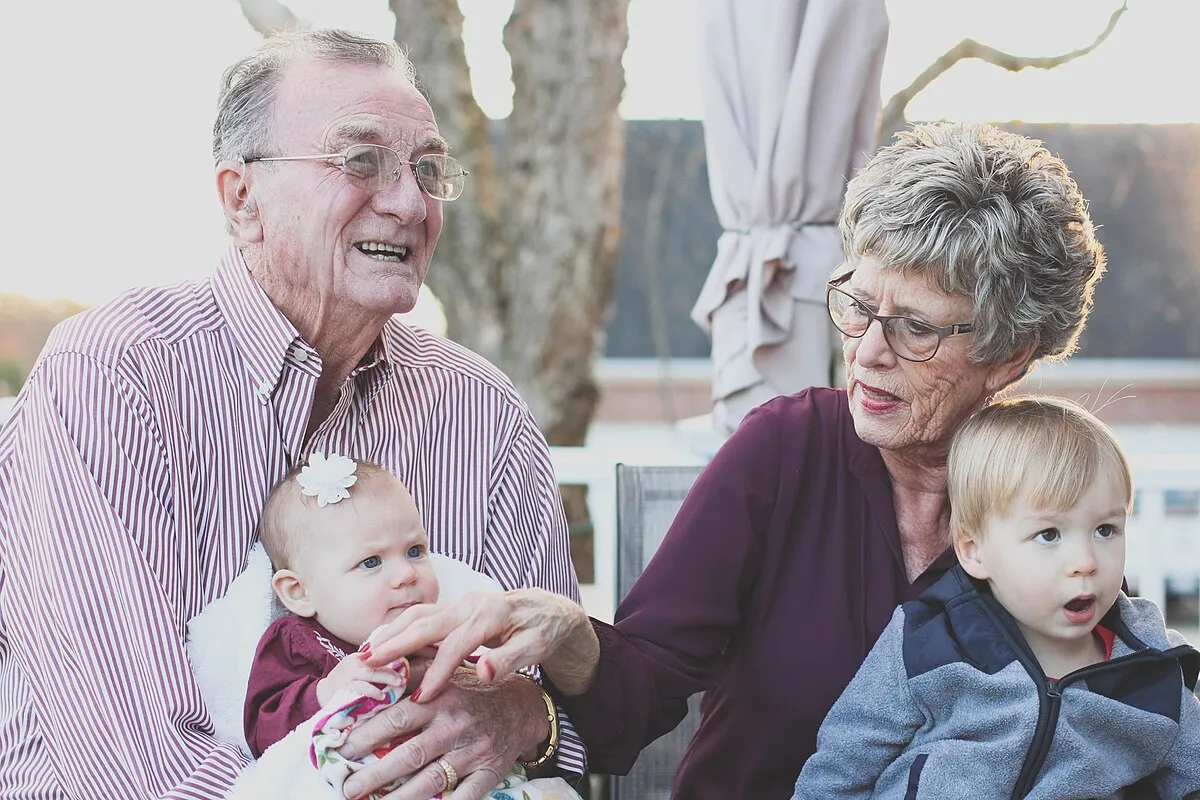
A majority of people get to know their grandparents before they die. At last some people have a chance to meet at least some of their eight great-grandparents while being small children. I've been a guest at one of my great-grandmother's funeral at the age of five. All I remember was the long black Mercedes taxi in which that some older guests arrived at funeral and the curious Karelian custom of serving the dessert first. My great grandmother herself I do not remember because I only met her a few times and the usual childhood amnesia made me forget those memories. My great grandparents are familiar to me only from a precious few photographs and stories. Their parents and grandparents are abstractions to me.
When you go back in the chain of generations, the degree of your relatedness to your ancestors actually halves in each generation. Also, their number grows. Each of us has two parents, four grandparents, eight great-grandparents and so on. One of the things anyone should understand is the non-linearity of ancestry. The illusion that it matters who our ancestors were ten generations in the past is caused by the fact that the higher social classes used to practice primogeniture in the past. What that means is the right of the first-born to inherit some heritable title or most of the property. In the lives of most people, including the higher socio-economic strata, today it is practically completely meaningless who their ancestors were in the distant past. Those people most likely have large number of other descendants today that you would consider unrelated.
It is not a co-incidence that people don't usually live longer than barely old enough to see their grandchildren grow up. The fact that we live that long in the first place is because humans have a very long childhood and that we are extremely costly to raise into adulthood. Grandparents play a vital role in helping their children raise their children and stepping in if a parent dies or something goes seriously wrong. It is for this purpose that women undergo menopause decades earlier than their natural lifespans come to an end. Older people have also had and still have as sources of wisdom accumulated over a long time. (That is changing but that's a different story.) When humans have fulfilled their purpose in reproducing themselves and helping their children raise their own children, they tend to become decrepit and die to make room for new generations.
P.S. It would be interesting if biological aging were artificially slowed down sufficiently for many more than the usual 3-4 generation to exist at the same time. But even in the absence of such wonderful technology, modern technology can greatly expand our capacity to remember and to create lasting memories. An immutable public data structure like our beloved blockchain has just that capacity. Whatever we write here will be stored for as long as the chain will run. And, in fact, with the right encoding images could be stored immutably as well. It is not as if there is too little spare capacity on chain. Hive is operating at a such a tiny percentage of its capacity that an app for storing image data would actually not be too expensive to use at this level of chain activity. It could also boost the pitifully small organic demand for Resource Credits to boost demand for Hive Power. That's something to think about.